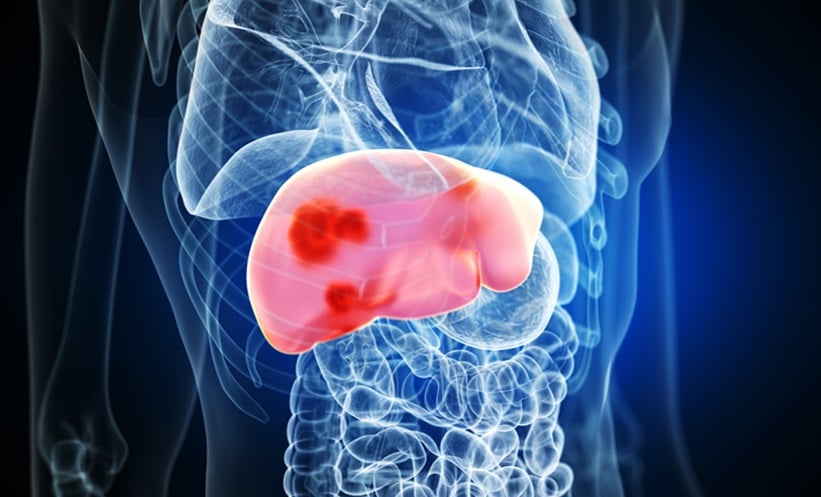A NEW study led by Neehar Parikh, University of Michigan, Ann Arbor, Michigan, USA, has developed a model utilising both clinical and imaging data that has shown promise in predicting the absence of high-risk varices in patients with unresectable hepatocellular carcinoma (HCC).
The retrospective cohort study was conducted across 21 centres in the USA including adult patients diagnosed with unresectable HCC and Child Pugh A5-B7 cirrhosis between 2007 and 2019. Focus was placed on patients who had completed an esophagogastroduodenoscopy (EGD) within 12 months of index imaging but before HCC treatment.
The study cohort comprised 707 patients, 80.6% of whom were male, with a median age of 64.6 years. The median time from HCC diagnosis to EGD was 47 days, and 25% of patients had high-risk varices. Patients were randomly assigned 70:30 into training and validation sets. The final model was selected to maximize negative predictive value (NPV) and minimise false negatives. A model using only clinical variables achieved an NPV of 86.3% in the validation cohort. In contrast, a model that integrated both clinical and imaging variables achieved an NPV of 97.4%. This combined model would avoid EGDs in over half of the low-risk patients while misclassifying 7.7% of high-risk patients.
The findings show that a model incorporating both clinical and imaging data can accurately predict the absence of high-risk varices in patients with HCC, an approach that can help avoid EGD in many low-risk patients before starting systemic therapy, thus preventing treatment delays. This advancement could potentially eliminate the need for unnecessary upper endoscopies in low-risk patients.
Although, while the results are promising, there are limitations to consider. Due to the retrospective nature of the included data and potential biases, further research, including a prospective validation study, will be useful to determine the model’s utility in clinical practice.
Katie Wright, EMJ
Reference
Parikh ND et al. Development and validation of a noninvasive model for the detection of high-risk varices in patients with unresectable HCC. Clin Gastroenterol Hepatol. 2024;DOI:10.1016/j.cgh.2024.07.008.








